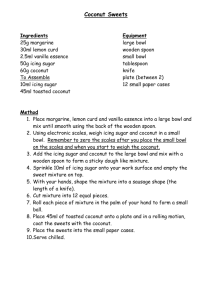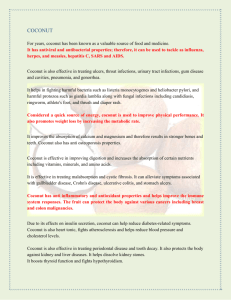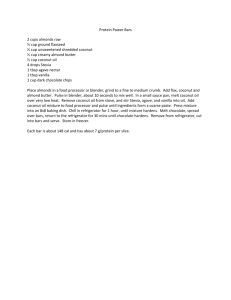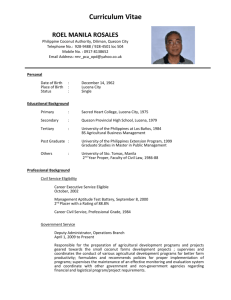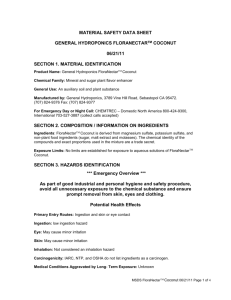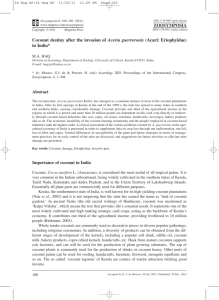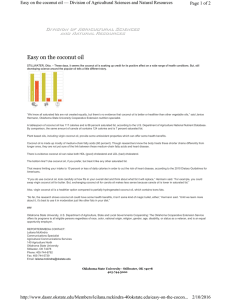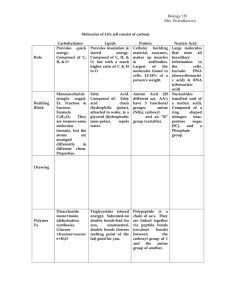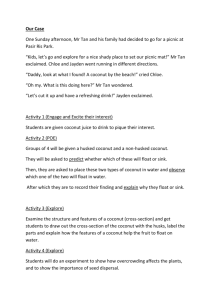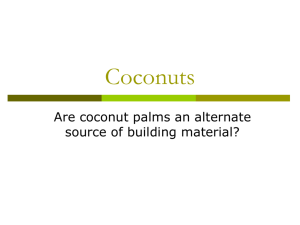AP Biology Summer Assignment Mr. Kruger Part 1 (25 points) Read
advertisement
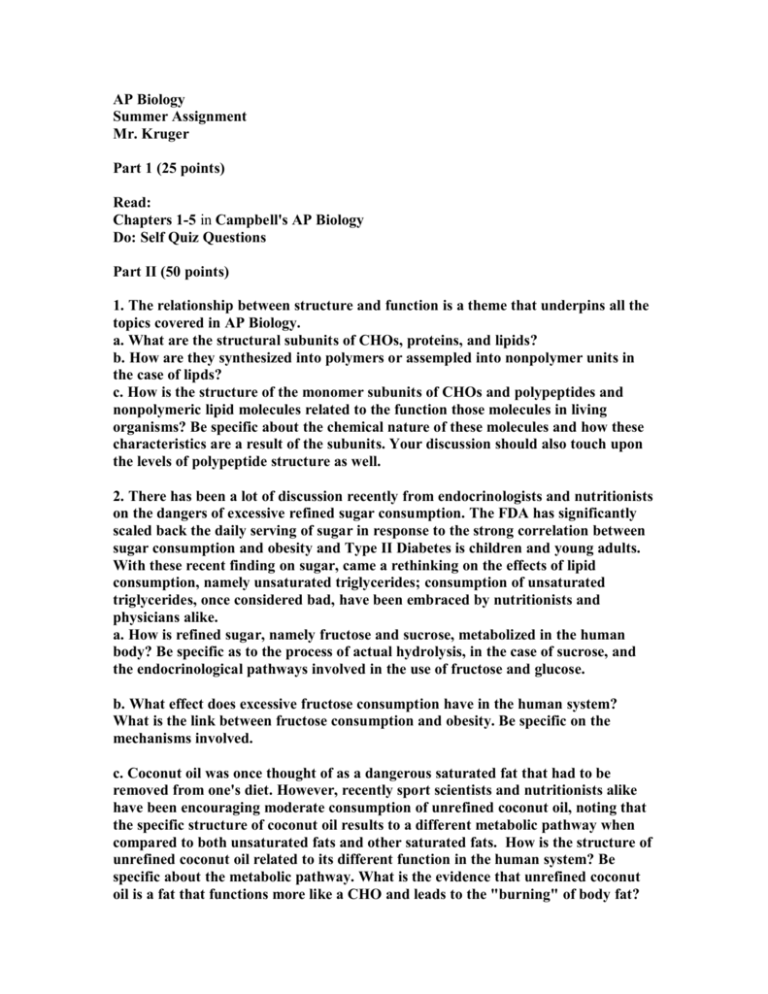
AP Biology Summer Assignment Mr. Kruger Part 1 (25 points) Read: Chapters 1-5 in Campbell's AP Biology Do: Self Quiz Questions Part II (50 points) 1. The relationship between structure and function is a theme that underpins all the topics covered in AP Biology. a. What are the structural subunits of CHOs, proteins, and lipids? b. How are they synthesized into polymers or assempled into nonpolymer units in the case of lipds? c. How is the structure of the monomer subunits of CHOs and polypeptides and nonpolymeric lipid molecules related to the function those molecules in living organisms? Be specific about the chemical nature of these molecules and how these characteristics are a result of the subunits. Your discussion should also touch upon the levels of polypeptide structure as well. 2. There has been a lot of discussion recently from endocrinologists and nutritionists on the dangers of excessive refined sugar consumption. The FDA has significantly scaled back the daily serving of sugar in response to the strong correlation between sugar consumption and obesity and Type II Diabetes is children and young adults. With these recent finding on sugar, came a rethinking on the effects of lipid consumption, namely unsaturated triglycerides; consumption of unsaturated triglycerides, once considered bad, have been embraced by nutritionists and physicians alike. a. How is refined sugar, namely fructose and sucrose, metabolized in the human body? Be specific as to the process of actual hydrolysis, in the case of sucrose, and the endocrinological pathways involved in the use of fructose and glucose. b. What effect does excessive fructose consumption have in the human system? What is the link between fructose consumption and obesity. Be specific on the mechanisms involved. c. Coconut oil was once thought of as a dangerous saturated fat that had to be removed from one's diet. However, recently sport scientists and nutritionists alike have been encouraging moderate consumption of unrefined coconut oil, noting that the specific structure of coconut oil results to a different metabolic pathway when compared to both unsaturated fats and other saturated fats. How is the structure of unrefined coconut oil related to its different function in the human system? Be specific about the metabolic pathway. What is the evidence that unrefined coconut oil is a fat that functions more like a CHO and leads to the "burning" of body fat? d. Body builders are fastidious, some wouldd say obesessed, in maintaining lean muscle mass. In this effort, they tout protein and unrefined coconut oil as "thermogenic" foods. What properties do thermogenic foods have? Be specific about the pathway of their digestion.

